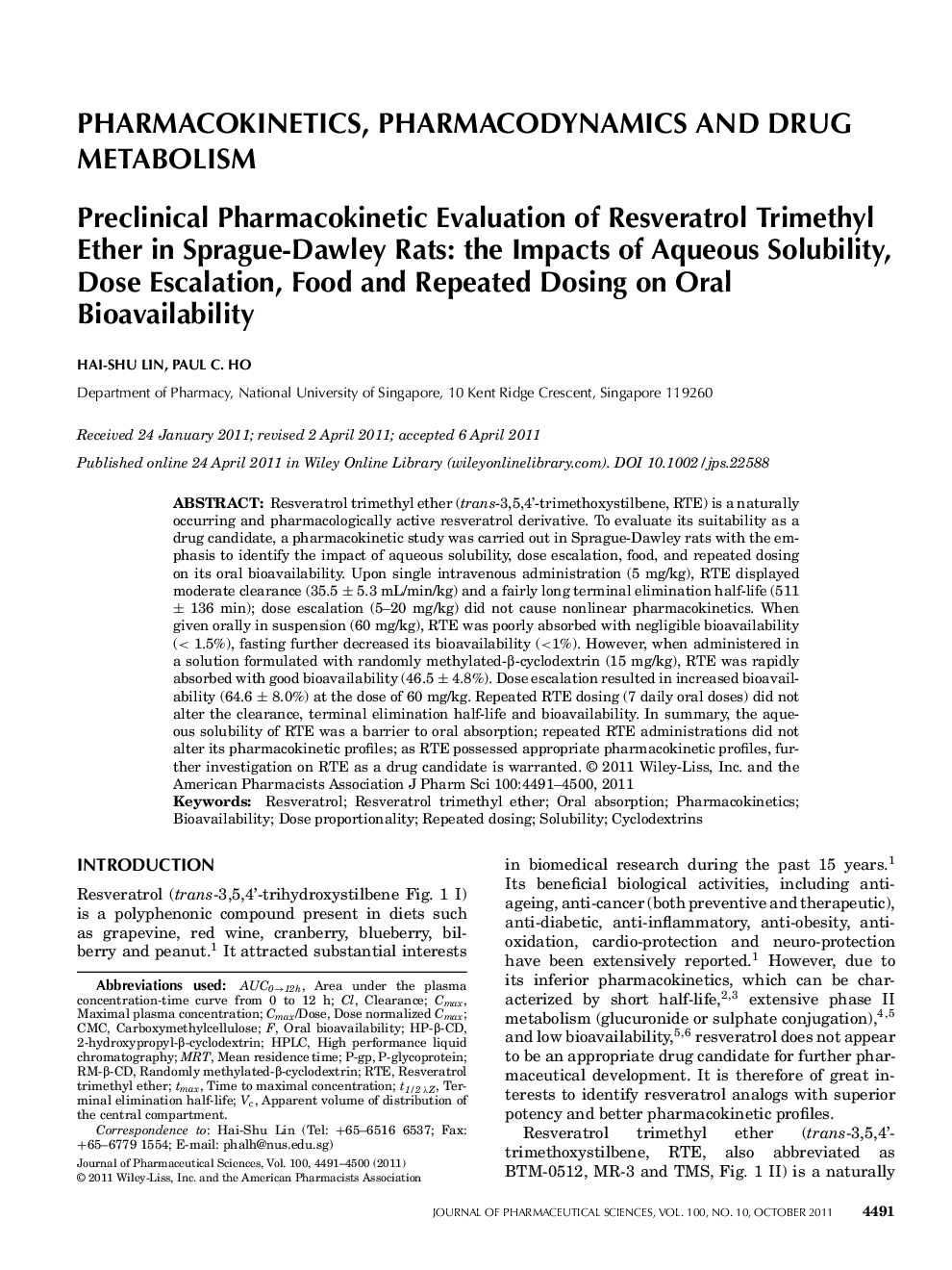| Article ID | Journal | Published Year | Pages | File Type |
|---|---|---|---|---|
| 2485275 | Journal of Pharmaceutical Sciences | 2011 | 10 Pages |
Abstract
Resveratrol trimethyl ether (trans-3,5,4'-trimethoxystilbene, RTE) is a naturally occurring and pharmacologically active resveratrol derivative. To evaluate its suitability as a drug candidate, a pharmacokinetic study was carried out in Sprague-Dawley rats with the emphasis to identify the impact of aqueous solubility, dose escalation, food, and repeated dosing on its oral bioavailability. Upon single intravenous administration (5 mg/kg), RTE displayed moderate clearance (35.5 ± 5.3 mL/min/kg) and a fairly long terminal elimination half-life (511 ± 136 min); dose escalation (5-20 mg/kg) did not cause nonlinear pharmacokinetics. When given orally in suspension (60 mg/kg), RTE was poorly absorbed with negligible bioavailability (< 1.5%), fasting further decreased its bioavailability (<1%). However, when administered in a solution formulated with randomly methylated-β-cyclodextrin (15 mg/kg), RTE was rapidly absorbed with good bioavailability (46.5 ± 4.8%). Dose escalation resulted in increased bioavailability (64.6 ± 8.0%) at the dose of 60 mg/kg. Repeated RTE dosing (7 daily oral doses) did not alter the clearance, terminal elimination half-life and bioavailability. In summary, the aqueous solubility of RTE was a barrier to oral absorption; repeated RTE administrations did not alter its pharmacokinetic profiles; as RTE possessed appropriate pharmacokinetic profiles, further investigation on RTE as a drug candidate is warranted. © 2011 Wiley-Liss, Inc. and the American Pharmacists Association J Pharm Sci 100:4491-4500, 2011
Keywords
Related Topics
Health Sciences
Pharmacology, Toxicology and Pharmaceutical Science
Drug Discovery
Authors
Hai-shu Lin, Paul C. Ho,
